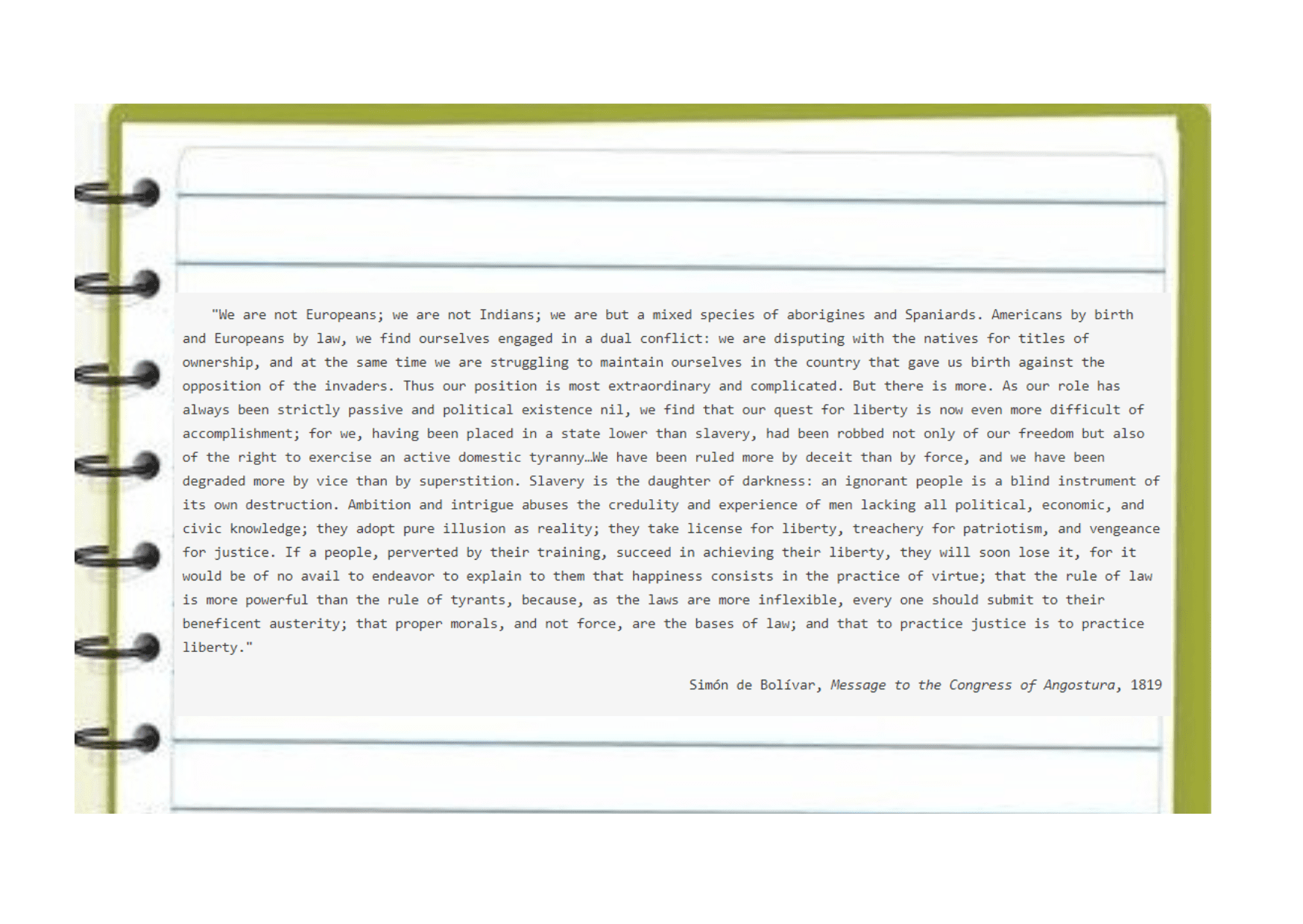
Explanation:
Simón de Bolvar, the speaker who gave this statement, was a well-known military leader and statesman who spearheaded the struggle for South America's independence.
Explanation:
The author claims that "good morals, not force, are the grounds of law; and that to practice justice is to practice liberty" in the final sentence of the paragraph.
Explanation:
Simón de Bolivar headed a movement that was successful in establishing several independent countries, notably Venezuela and Colombia. His lofty goal was to politically unite these disparate states, and he presided over this union, known as Gran Colombia, for more than ten years.
Explanation:
According to the introduction, the incidents took place in the 1940s, which was the time of World War II. The Crimean War lasted from 1853 to 1856, hence the reference period is incorrect. World War I took place between 1914 to 1918. Europe saw the Seven Years' War, particularly between 1755 and 1763. It consequently belongs to a different time period and took place somewhere else.
Explanation:
Because of Germany's invasion of the Soviet Union, the United States formed an alliance with the Soviet Union. Nonetheless, there was some mistrust because the Russians had already agreed to refrain from attacking Germany. The Soviets believed that the United States had been only somewhat supportive of them by refusing to establish an Eastern Front to relieve the strain on Soviet forces. Because of this mistrust, the two weren't really allies or buddies (A). They were not adversaries either because the US was trying to find a compromise with the Soviets (D). The Russians weren't strangers because their opinions were taken into consideration (C).
Explanation:
Currently, Korea is divided into a democratic, capitalist state in the south and a communist dictatorship in the north. Korea is not under Japanese control or possession (C). South Korea now enjoys a democratic government thanks to American intervention, but North Korea restricts its residents' personal freedoms (A). South Korea saw significant economic expansion over the same time period, but North Korea endured economic difficulties in the late 20th century (D).
Explanation:
The term "containment" refers to the strategy of preventing the spread of communism by limiting the area that communist countries occupied. Détente implies a thawing of relations, which is inaccurate given the passage's indicated mistrust of the Soviet Union (C). According to the concept of "mutually assured destruction," deploying nuclear weapons would be discouraged for both the Soviet Union and the United States since doing so would result in their mutual destruction. The passage is false because Soviet nuclear capabilities predate it (D). Dollar Diplomacy emphasized how the United States used its economic might in South America to advance its political objectives (B).